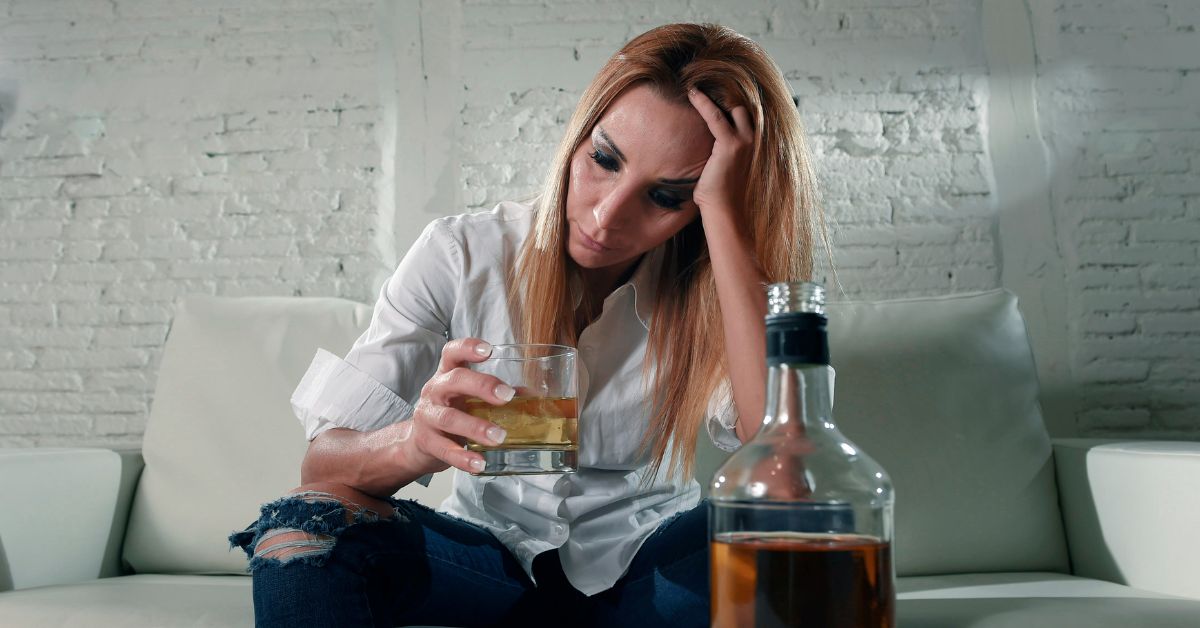When a loved one struggling with addiction progresses toward recovery, it can be challenging to understand why they might relapse.
Drug abuse and relapse can be complex issues, influenced by factors like human psychology, neural pathways, and emotional trauma.
To truly understand why someone might relapse when things are good, we must approach the topic with empathy and understanding. Together, let’s explore this issue and look for practical solutions. Your loved one is not alone; with your help, they will overcome any obstacle.
Understanding Addiction
Addiction is a chronic disease characterized by a strong need or desire to use substances, which can also extend to harmful habits like gambling or binge eating. It is often misunderstood as a lack of willpower.
The causes include genetics, environment, and life experiences. It impacts brain chemistry, disrupting its normal rhythm and creating a constant craving for the substance of choice.
Understanding this disease can give you a better idea of how to approach the situation. Also, it’ll help your loved one during the first steps of recovery.
Diving into Drug and Alcohol Abuse

Many people are struggling with substance abuse for the same reason. This initially offers comfort but ultimately leads the user into a never-ending cycle of addiction and relapse.
The Cycle of Addiction and Relapse
When someone is using drugs or alcohol, there’s repetitive use, periods of commitment to sobriety, and then returning to substances. This distraction seems helpful to ease the pain for your loved one, but it ultimately takes over the brain’s reward system.
Dependence develops gradually, getting the user into a harmful cycle, resulting in frequent relapses on the path to recovery. The pattern of drug addiction brings us face-to-face with its cyclical nature:
- Initial Use: A voluntary decision that seemingly resolves a problem or creates a sense of pleasure.
- Abuse: The frequency of usage increases, causing changes in the brain that influence self-control and judgment.
- Dependence: The individual no longer uses drugs for pleasure but to maintain a habit.
- Addiction: The individual cannot quit despite the consequences of prolonged use.
- Relapse: A return to drug use after attempts to stop, triggered by psychological reasons.
FREE: Get the 3 pieces of advice that helped me understand this disease of addiction
The Impact and Implications of Substance Abuse
Although drugs are different, they work in a very similar way. They manipulate decision making in recovery, exploiting the reward system and leading to dependency.
- Psychoactive drugs: Affect brain chemistry, alter mood, and lead to prolonged psychological issues.
- Stimulants: Amplify dopamine production. However, the after-effects range from heart issues to violent behavior.
- Alcohol: Influences the way your loved one thinks and behaves. In the long term, it can cause psychological disorders and liver diseases.
Exploring the Reasons for Relapse

Chemical reasons extensively contribute to relapse. But your loved one’s actions, thoughts, habits, and circumstances also take part of it. Unexpected happiness, grief, stress, or even a nostalgic memory can trigger a chain reaction, eventually leading to a relapse.
The Contradiction of Happiness in Addiction
Ironically, while happiness should foster recovery, it often acts as a trigger. Sometimes, the brain doesn’t always know how to handle so much fun without using drugs. That’s why social gatherings can be triggering for a recovering addict.
It’s essential to find new, healthier ways to celebrate. Your loved one can share their joy with friends over a nice lunch rather than with a party at a bar. The key lies in understanding this paradox and cultivating healthy coping mechanisms to confound these triggers.
The Role of Stress in Relapse
It may be surprising, but stress can act as an alert for relapse. This highlights the significance of managing stress. Being able to master this skill can significantly aid in the success of addiction recovery.
- Good Stress: Organizing a party or starting a new job initiates a physiological response in the body. The body might associate this response with substance use, triggering cravings.
- Bad Stress: Worrying about finances or health-related concerns can decrease life quality. They also serve as reasons to go back to unhealthy habits.
FREE: Get the 3 pieces of advice that helped me understand this disease of addiction
Providing Solutions to the Struggles of Relapse
It’s advisable to embrace holistic methods to start the recovery journey. This includes therapy sessions, time management, support groups, and self-care to restore well-being. Combining these approaches allows your loved one to stop using the substance effectively.
The Pivotal Role of Therapy
During therapy sessions, individuals can explore the underlying issues contributing to substance abuse. This process helps to confront these issues head-on.
- Individual Therapy: One-on-one sessions can help understand personal triggers and create strategies to deal with them.
- Group Therapy: This approach encourages a sense of camaraderie, helping your loved one they’re not alone. It also provides an opportunity to learn from the experiences of others.
Treading the Path of Self-care
Self-care is also crucial in this process. It addresses physical, psychological, and emotional aspects. Individuals can avoid falling back into addiction by incorporating the following strategies:
- Balanced Nutrition: It helps restore physical health and energize the body.
- Adequate Sleep: It allows the mind and body to heal and strengthen.
- Having New Hobbies: It is an effective distraction and a therapeutic outlet.
Moving Past Relapse

Relapse is a common occurrence for those struggling with addiction. While it can be frustrating and demoralizing, it’s crucial to remember that recovery is not a linear process.
We’ve explored why addicts may relapse even when things are going well, including lack of support and coping skills, underlying emotional issues, and triggers that can arise unexpectedly.
It’s important to remember that relapse is not a personal failure but a part of the recovery journey, and with the proper support, resources, and coping strategies, it’s possible to overcome relapses and continue on the path to recovery. If you approach it with compassion and awareness, your loved one can move toward a healthier future.
Frequently Asked Questions About Why Do Addicts Relapse When Things Are Good?
What are the top 3 factors that contribute to relapse?
The main reasons for addiction relapse are stress, exposure to triggers, being in environments where drugs or alcohol are present, or being friends with people who use them. These factors can weaken the determination to remain sober and increase the likelihood of relapsing.
At what point do most people relapse?
It’s common for individuals to experience a relapse within the first six months of their recovery journey. During this period, their determination may be fragile, and they may struggle with establishing effective coping mechanisms. This phase is particularly challenging and can increase the likelihood of a relapse.
SEE: Find out why your boundaries keep getting crossed (and how to reinforce them)
Why do people relapse when they’re happy?
Individuals can experience a “celebratory relapse” when they’re feeling happy. This phenomenon occurs when positive emotions such as happiness, success, or celebration serve as triggers that lead to the false belief that one can control their use or indulge in their addiction just once without falling back into it.
What are 3 mistaken beliefs about relapse?
Three mistaken beliefs about relapse include: Relapse is a sign of failure, treatment efforts are ineffective, and that relapse is the end of the recovery journey. These misconceptions leave aside the fact that relapse is a part of the recovery process and a chance to reinforce coping strategies.
